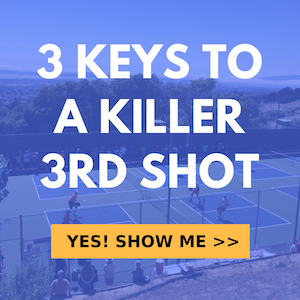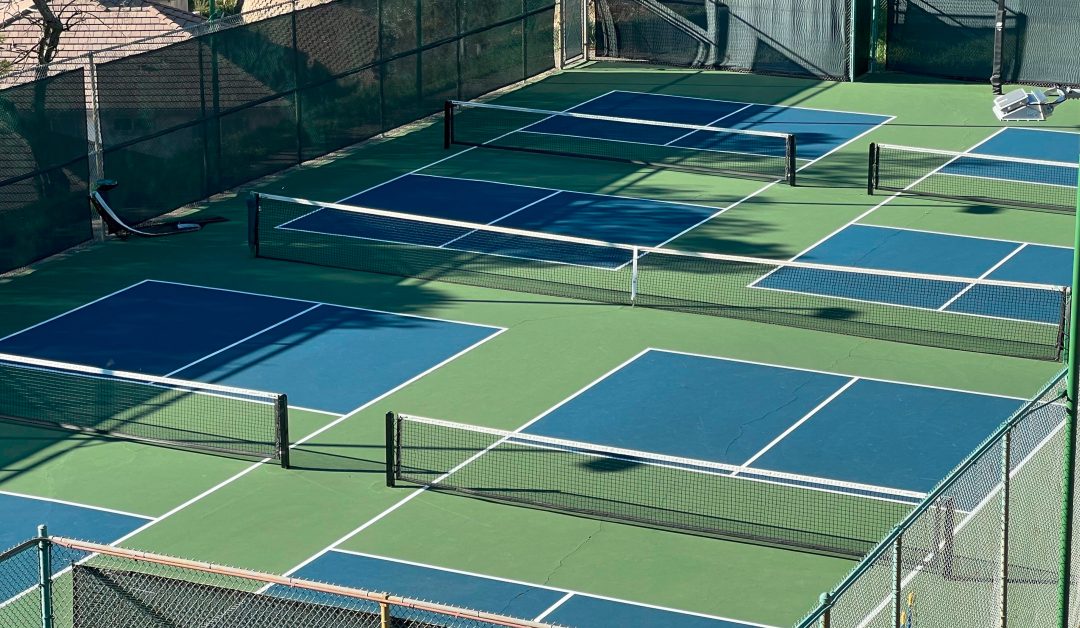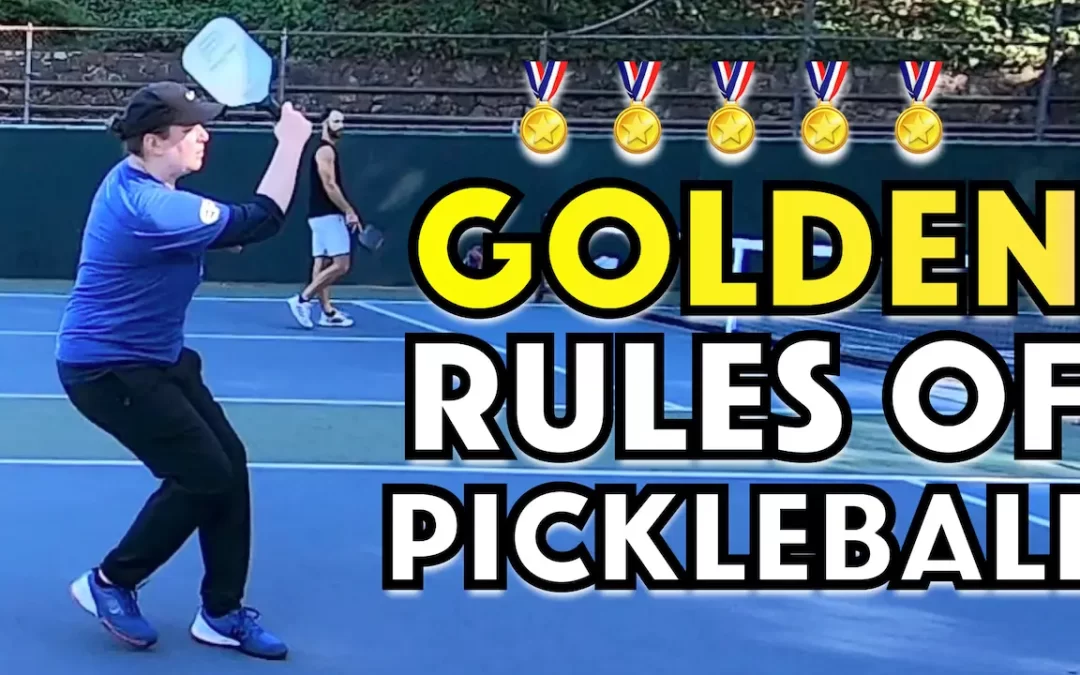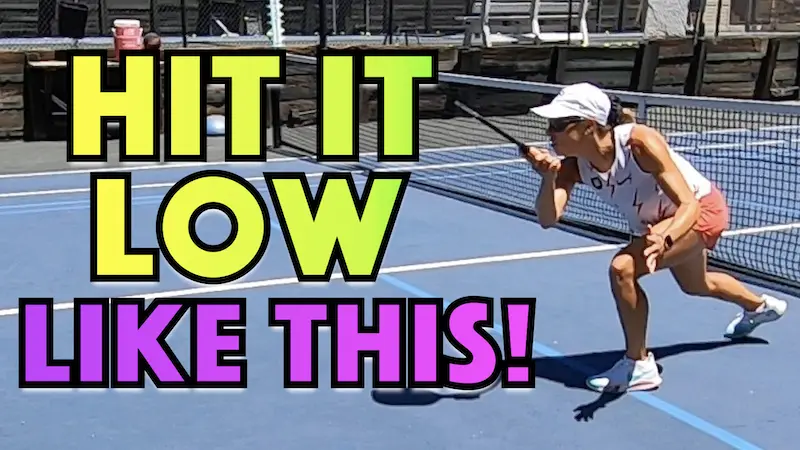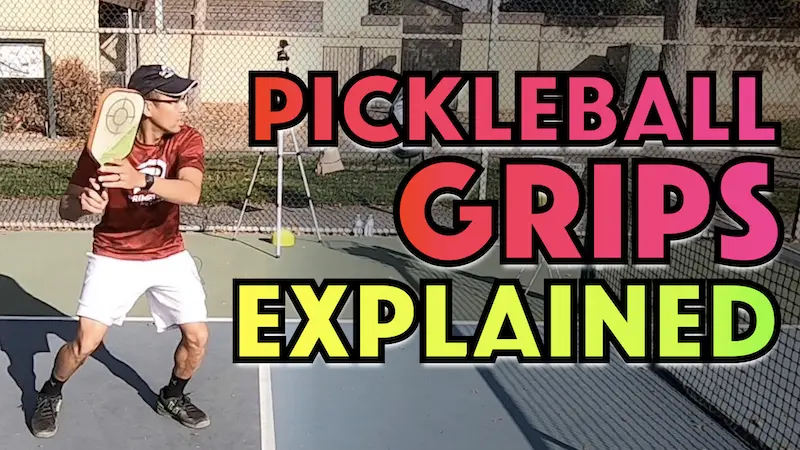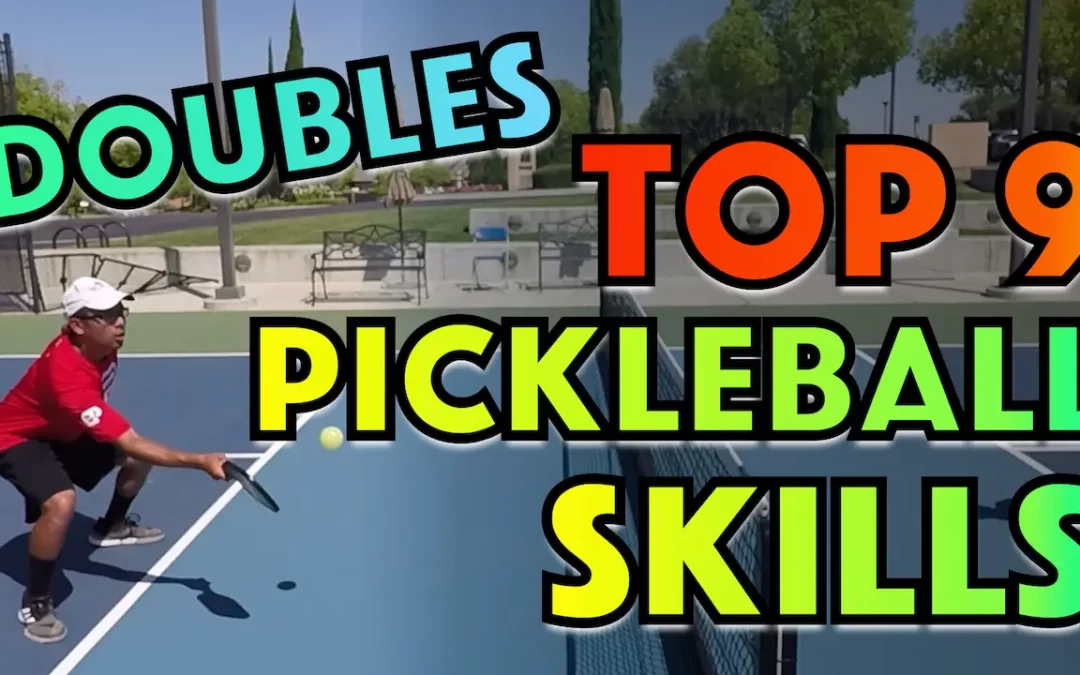We’re going to dive into three big constraints that are holding many players back from becoming the player they want to be.
The good news is that these things can be addressed, and fixes can be implemented right away. The bad news is that most aren’t even aware that these roadblocks are often a big part of what’s holding them back.
Not to worry because we’re going to tell you how to fix all of that today.
Constraint #1 – Being Unprepared
The first constraint that holds many back is being unprepared. When I say unprepared, I mean that you’re either not ready mentally, physically or emotionally for the game or the practice session that is about to happen.
There’s so much going on to deal with in a pickleball game or practice like the weather conditions, the ball speed and spin movement, your opponent’s shot making, your footwork and shot making, and the list goes on and on.
If you’re not 100% present it’s likely going to be a problem especially against well-matched or formidable opponents or drilling partners.
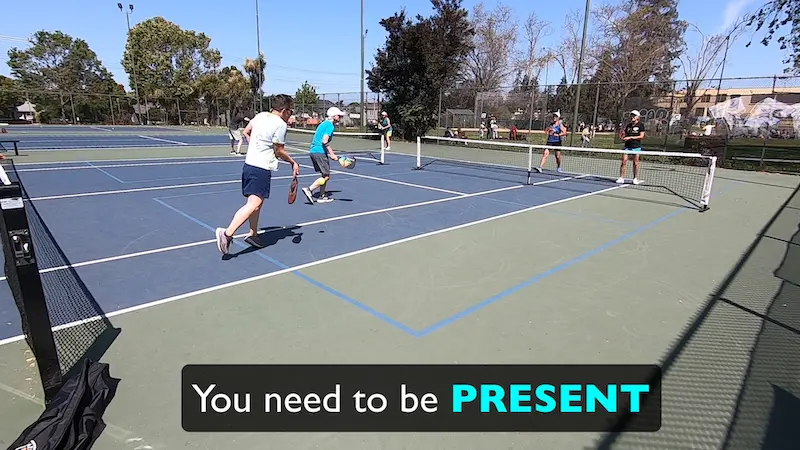
If you’re not ready in all these ways then here’s how things will likely go: the game will start, you’ll play a few bad points making some silly mistakes because you really haven’t fully shown up in some way to begin with. Then, you’ll be frustrated about that, so you’ll play a few more bad points. You’ll start to feel bad because you’re letting your partner down and that’s not likely to make you play any better. So, there goes a few more points.
Before long the whole game is gone and you’re kicking yourself because you know you’re so much better than the way you just played out there.
Sound familiar?
I bet it does because it happens so very often. Too often to many of us.
The reality is that the game was lost before it ever started. There are so many things that can lead to this happening, but they generally fall into one of three buckets. Either you weren’t prepared mentally, physically or emotionally for this game or drilling session.
Maybe you didn’t sleep well, or you’re dehydrated, or you didn’t eat enough throughout the day.
Any of these factors will certainly take a toll and catch up with you during the course of a game.
Even if you start out well you won’t be able to sustain your energy as your physical resources continue to get depleted and your game will suffer as a result.
Maybe you had a fight with your spouse, friend, co-worker, or kids on the car ride over and you’re emotionally flustered. This leaves you unable to concentrate because you’re worried about that situation.
Maybe you arrive with a bad mental picture of how this game is going to go because you’re facing some tough opponents. You doubt yourself and you allow your thoughts to wander uncontrolled, playing images in your mind repeatedly of missing shots, allowing yourself to get mentally defeated before you even showed up to the courts.
If you have an important game coming up that you care about, regardless of if it’s recreational or competitive, then it’s important that you develop good habits in these areas for regular success during games and play of any kind.
Things like having your bags packed with everything you need the night before, getting a good night’s rest routinely, hydrating well all the time, eating regularly, and bringing snacks with you.
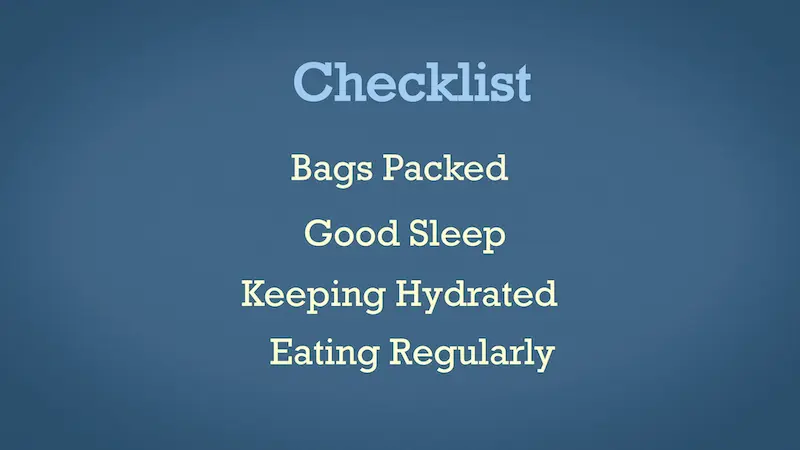
These things are cumulative so it’s important to stay on them regularly not just the night before or the day of. You must practice these things day in and day out.
If you have something you’re dealing with emotionally in your day or life that can’t be fixed in an instant, as many of us often do, acknowledge it ahead of time and choose to mentally set it aside for the time being.
Allow yourself this time and space for yourself to enjoy playing the game you love.
Don’t arrive at the courts gnawing on thoughts of how you’re going to deal with it right up until the moment you start striking the ball.
Set it aside at least an hour beforehand and protect that time and space before you play by getting yourself physically and mentally warmed up for your play.
Do a dynamic physical warm-up. We have a video on that if you don’t know what to do.
It’s very important to do it every time for injury prevention and physical preparedness before you play.
Visualize yourself playing good points and making good decisions, good execution, and good overall play. Feed your mind and your thoughts with positive imagery of your play.
Take deep breaths and calm yourself. Center yourself and your thoughts by bringing your attention to the present.
The game really does start long before you ever arrive at the courts. A huge component to success is the state in which you show up physically, mentally, and emotionally.
If you didn’t know that, well now you do. All of this applies to drilling sessions as well.
You must be well set up in these areas to have a successful drilling session and get the most out of it just as much as a successful game.
Being prepared is a habit.
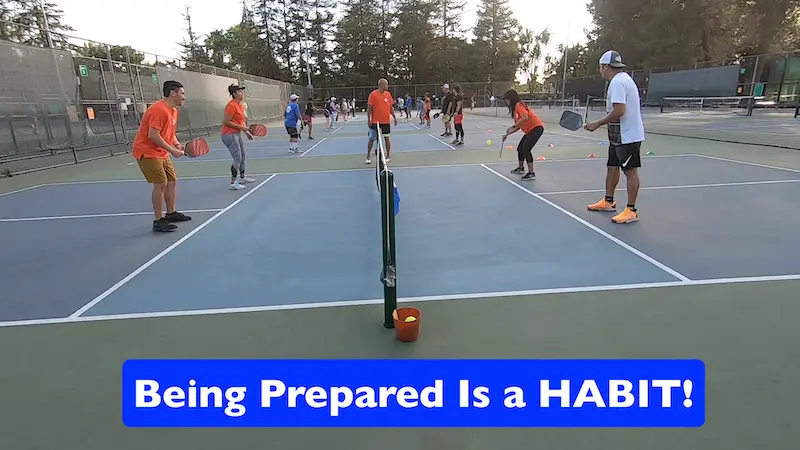
Constraint #2 – Being Unintentional
Another big thing holding many players back is that they are often unintentional. What I mean here is that they tend to have little to no plan when they get out there.
Early on, when you’re just starting to play the game of pickleball, you’re just having fun hitting that ball and chasing it down.
You’re figuring out the rules, what the score is, where to stand, what to hit, etc.
Your main goal is just trying to get it over the net and in play as much as possible.
That’s certainly a great start.
Soon after that, when you’ve developed some control, you start to see that you can direct traffic so to speak. If you hit it over here, then this type of shot tends to come back and if you hit it over there then this other type of shot tends to come back from your opponents.
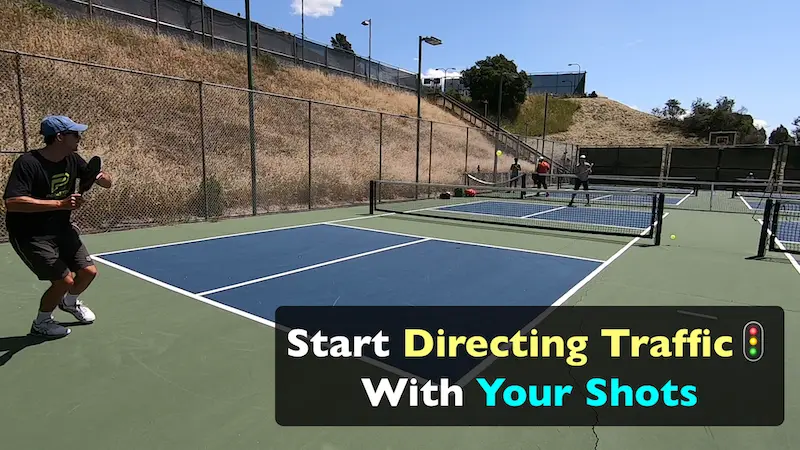
You start to see how you can dictate play.
That’s the beginning of seeing how strategy makes a big impact on the outcome of play.
You want to start to get more mindful and intentional about who you are as a player. Break down what your strengths and weaknesses are.
Figure out how you can approach this game so that you can maximize the number of times you’re hitting your strengths into your opponent’s weaknesses and minimize the amount of times that they’re hitting their strengths into your weaknesses.
You can control that to a great extent. That’s a big step towards becoming more intentional with your play.
You want to add a layer on top of that and factor in how you can help your partner do that too and maximize your opportunities as a team so that you can dramatically improve the chances of winning these games.
You really want to become a student of the game and observe what’s working and what’s not when you play with this person or that person. Or, against this person or that team.
You want to see how things change when the puzzle pieces are different, and you switch up partners and opponents.
Assess all the factors and create your battle plan each time.
You don’t want to be a pawn and let the other team dictate how this is all going to go. Know what you want to do and impose your will and presence.
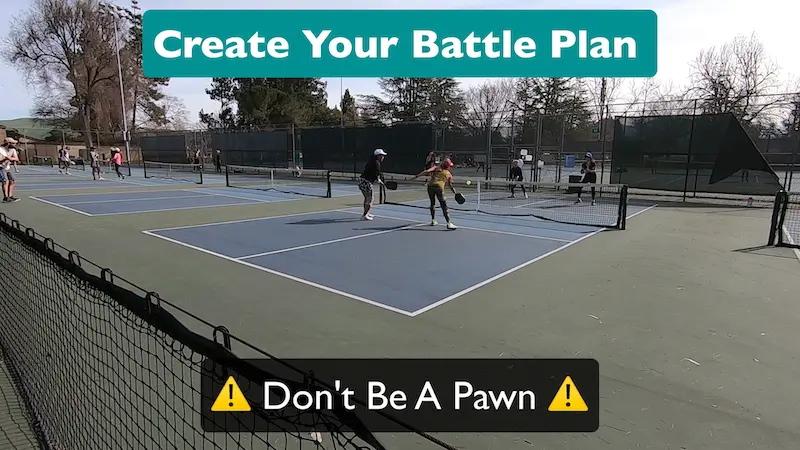
Focus all your attention on executing what you deem to be your winning plan. Be proactive rather than reactive. Your success hinges on it.
Maybe you know that this team you’re facing doesn’t have the fastest hands so it makes sense to drive a bit more than you normally would.
Then, this next team you’re facing has incredible hands and blocks well so you’re going to have to work each and every point to create your opportunities. They won’t give you anything for free, so you have to be laser focused mentally and execute well the entire game with little room for error.
Or, maybe one player has a super strong forehand and can just often dominate games with it regardless of who their partner is. Well maybe your number one objective and priority for that particular game is to keep it entirely away from that player’s forehand side because if you can you’ll likely win but if you can’t you likely won’t.
Success often comes down to laying out the best possible plan and doing your absolute best to execute on that plan, win or lose.
Don’t just go out there mindlessly hitting the ball and seeing what happens.
I find that too many players do that, or something close to that, where the plan is just too minimal.
Be intentional on every point with what you want to do for the best chances of success.
Constraint #3 – Unwillingness To Do What Is Needed
Finally, a third big constraint that may be holding you back, as it does so many, is your awareness of areas where you may be unwilling to do what’s necessary to make those next breakthroughs in your game.
Maybe you know you need to spend more time drilling, but you don’t.
Maybe you know you need to develop that backhand because it constantly gets picked on, but you don’t.
Maybe you know you need that soft game because your banging style just doesn’t work against those opponents on the higher-level courts but you just don’t do it.
You must make the time to do those things that you know you need to do to get better if you are committed to becoming the best player you possibly can be.
You can’t just hope, wish, and dream that playing in enough recreational games will finally take care of it and get you there one day.
It’s just not going to happen.
You must be willing to pay the price and do the work. There’s no escaping that fact in life, as in pickleball.
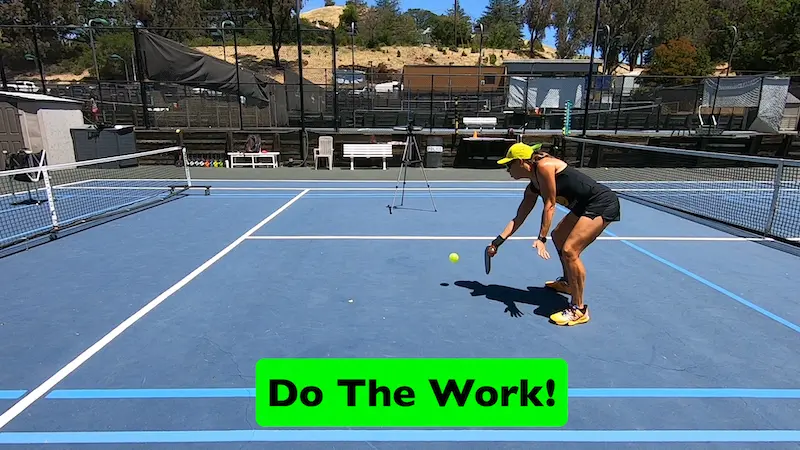
Willingness is the thread that really ties all these constraints together.
Are you willing to show up to the courts prepared physically, mentally, and emotionally?
You need to set time and space aside each day to make sure these things are in check.
Are you willing to have a plan for each game that will have to be flexible based on who you’re playing with and against?
Are you willing to make an honest assessment of your game and put in the time to work on what’s needed?
If you want to get better, it all comes down to your willingness to do the things it will take to help you get there.
Maybe you don’t really know what these things are and that’s okay.
Are you willing to get a coach to help guide you through the process?
There’s really nothing to stop you in most cases if you have the commitment.
Be prepared, be intentional, and be willing. This will take you soaring to new heights with your game.
